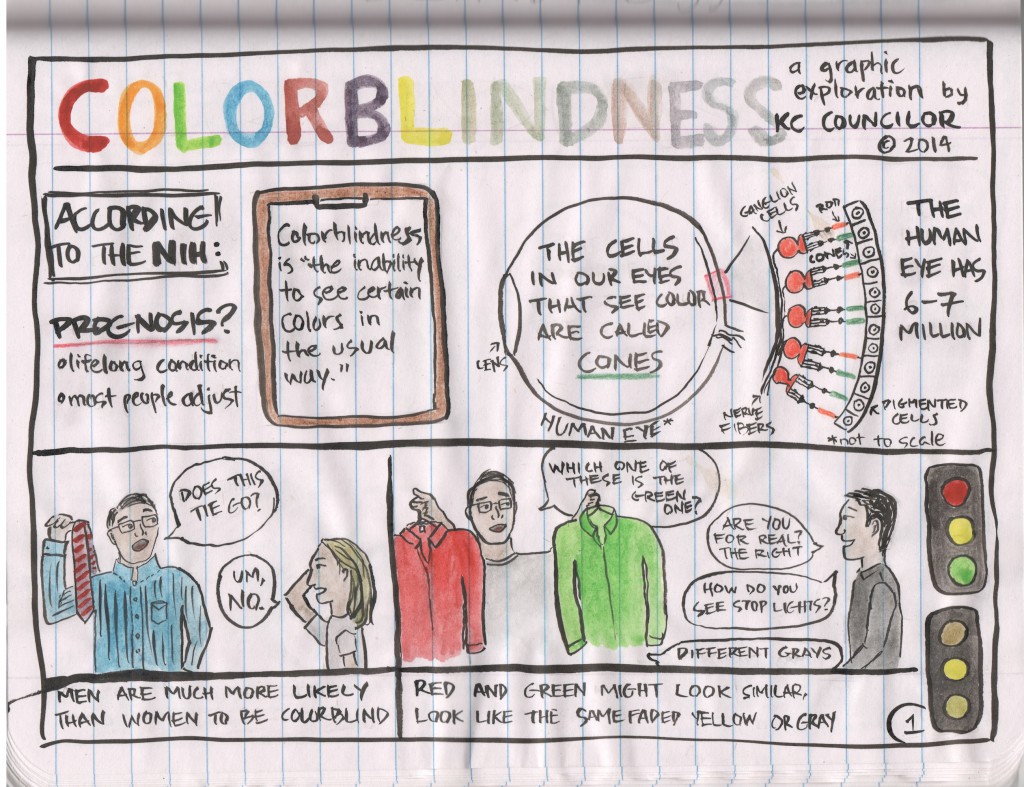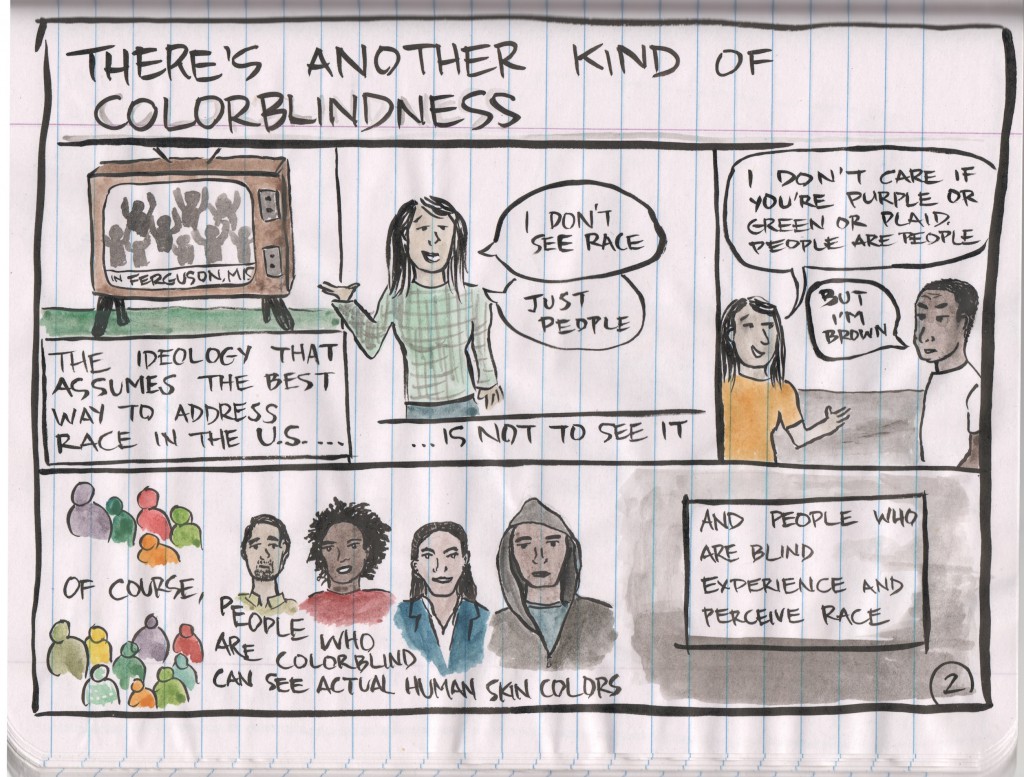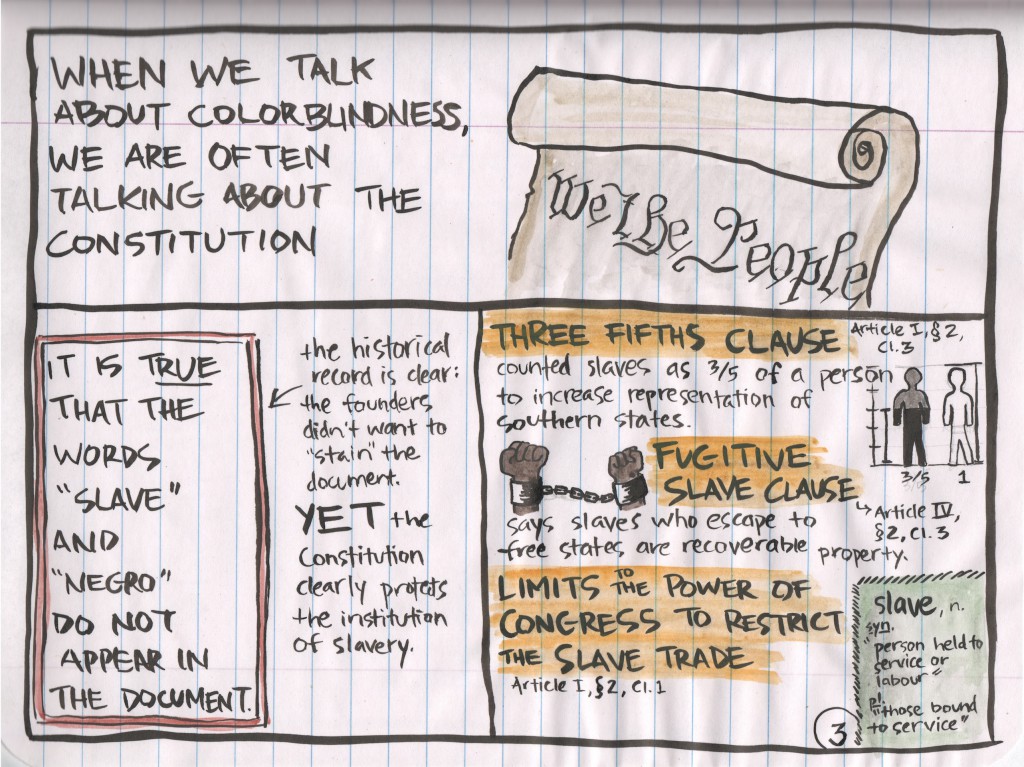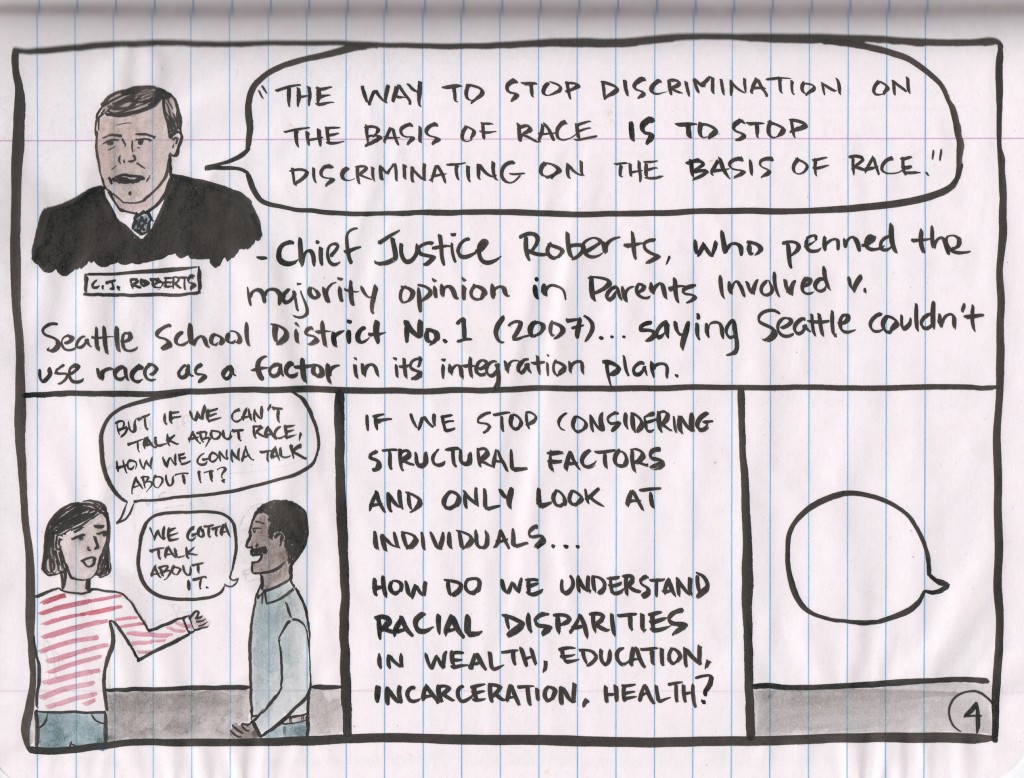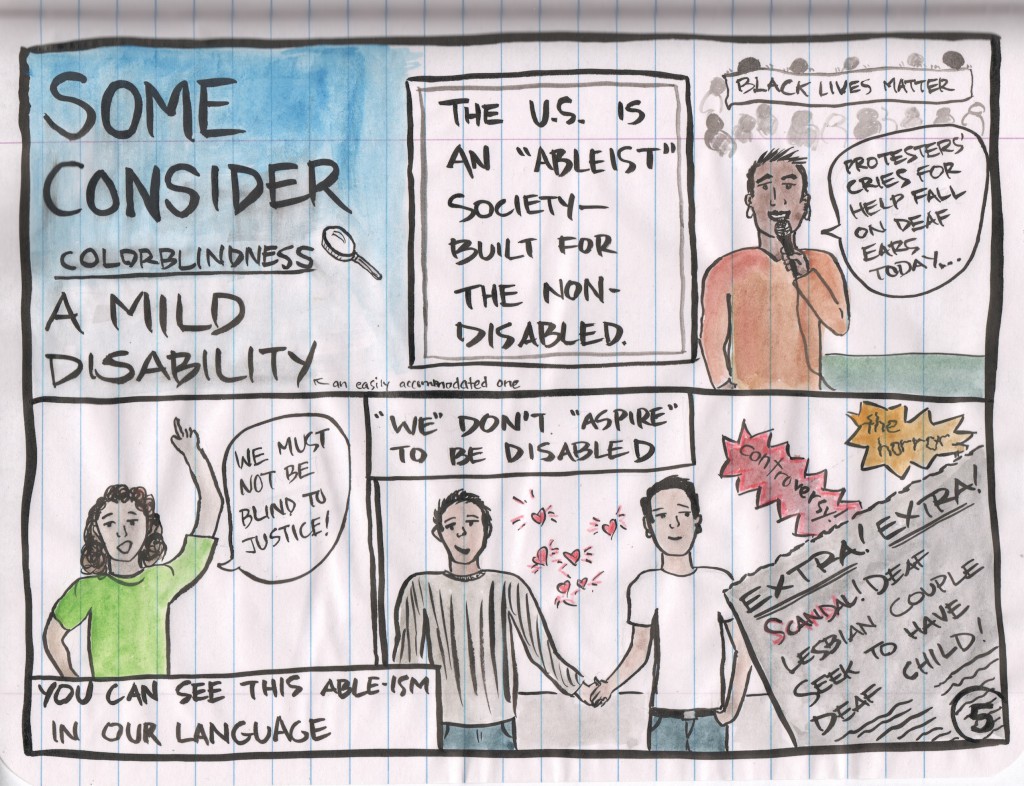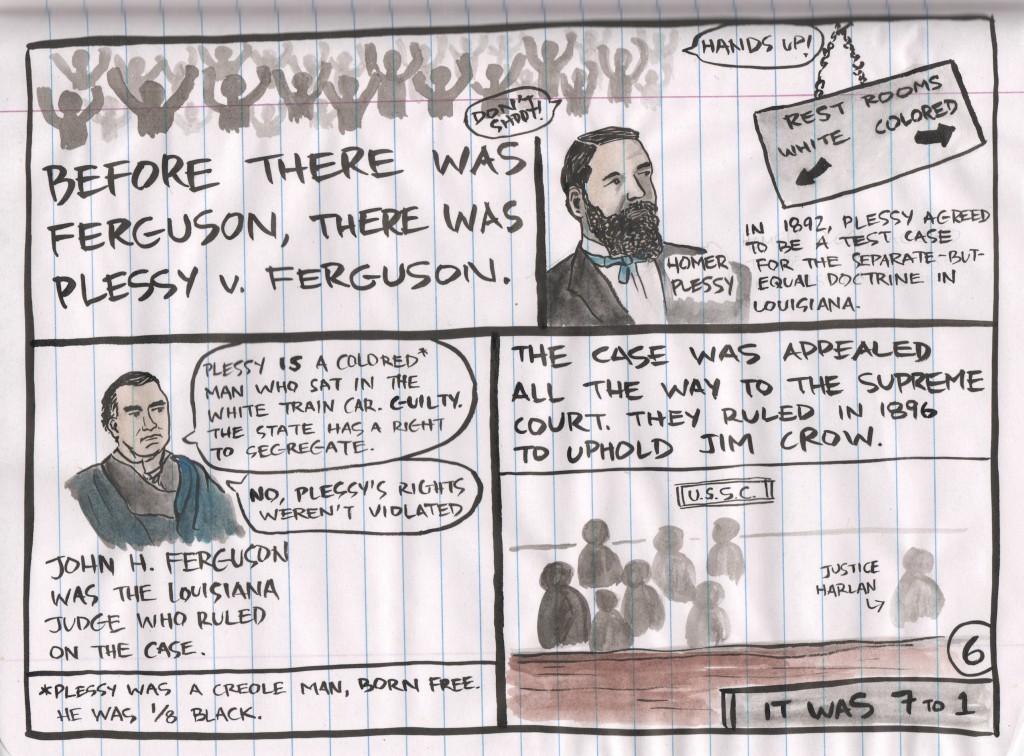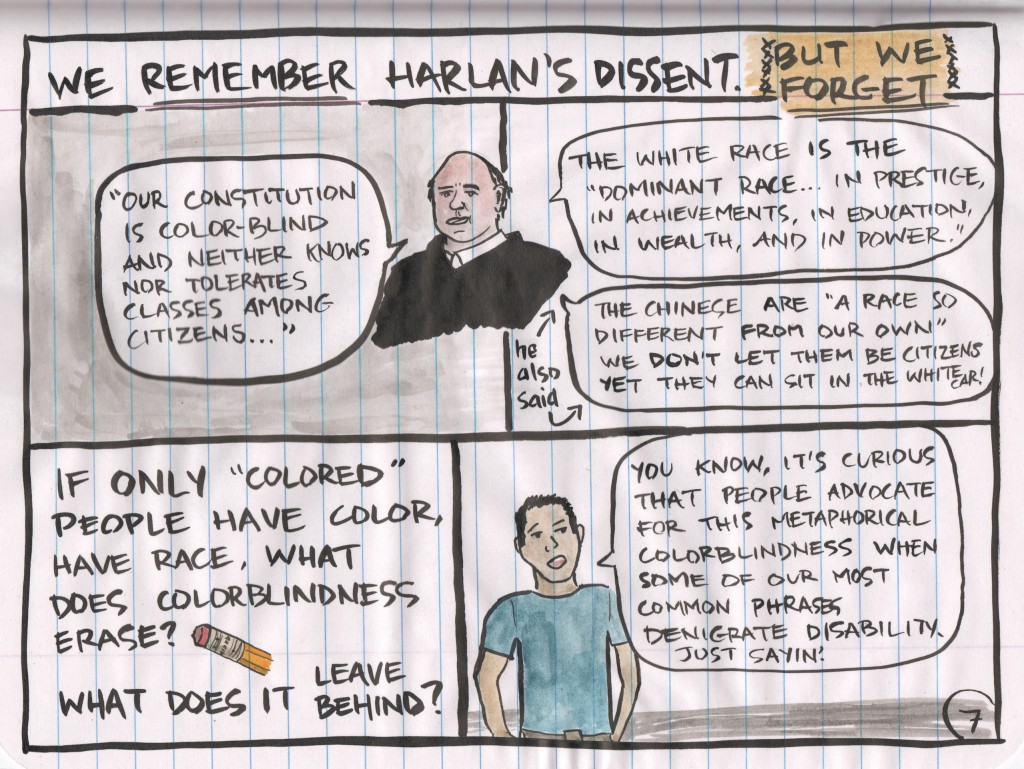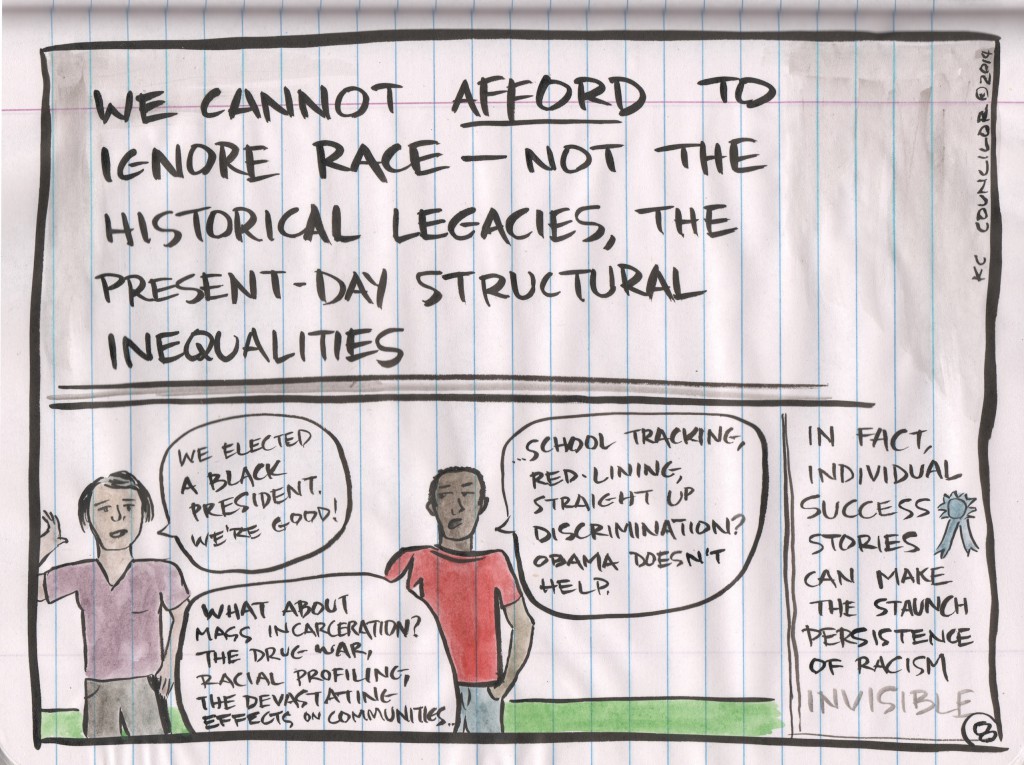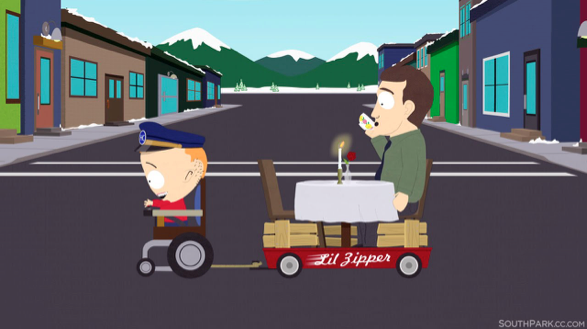Monthly Archives: December 2014
Free Markets and Union Thugs: Efficiency v. Equity in South Park’s “Handicar”
In a recent episode of South Park, creators Matt Stone and Trey Parker made a biting social commentary on recent transformations in the transportation marketplace. The episode, entitled “Handicar,” focuses on a fictional ridesharing application created by fourth grader Timmy Burch — a disabled character bound to his wheelchair. The app, to which the episode is named, is a satirical depiction of ridesharing service Uber, in which Timmy escorts customers around town in a red wagon attached to the back end of his motorized wheelchair. Having created the application as a way of fundraising for a camp for the disabled, the service quickly becomes popular throughout the town of South Park. However, not everyone in town is quite so fond of Handicar.
Nathan and Mimsy, two other attendees of the camp, want Handicar put out of business so that they don’t have to spend another summer at a camp they detest. Handicar’s rise to prominence also irritates the cab drivers of South Park who claim that the service is taking business from their industry. In their conjoined efforts to take down this new service, what follows is an absurd and hysterical storyline that pokes fun at Tesla Motors CEO Elon Musk and Lincoln Motors’ advertising campaign featuring Matthew McConaughey. This story culminates in a “Wacky Race” that pits Handicar against these other modes of transportation in a battle for market supremacy.
While it may be easy to laud the “Handicar” episode for its comedic value it is also important that we recognize the episode as a site of public argument. As scholars of argument and debate it is important that rhetoricians analyze and critique these mediated forms of argument in the public sphere. In their uptake of the Uber debates, Matt and Trey demonstrate their well-known Libertarian viewpoints, portraying Uber as a free market response to inefficient unionized cab services across the country. In making this argument South Park highlights what scholar Deborah Stone, in her book Policy Paradox, refers to as the myth of an equality-efficiency trade off in public policy debates.
Equity, Stone contends, is a goal of policy concerned with maintaining a just and fair distribution of “goods and services, wealth and income, health and illness, or opportunity and disadvantage” (p.39). Concerns about equity have been common topics of debate surrounding Uber across the country. These concerns are voiced, most commonly, by labor representatives and unionized taxi drivers. On the other side of the debate are those who argue that a lack of regulation on services like Uber create a more efficient market for consumers. Deborah Stone contends that efficient organizations are commonly thought of as ones that “get things done with a minimum of waste, duplication, and expenditure of resources” (p. 61).
The arguments presented in the “Handicar” episode regarding Timmy’s new ridesharing service employ similar claims to those lauding Uber, employing a free-market rhetoric of efficiency. Absent in its uptake of the Uber debates is a treatment of issues of equity in compensation and employment practices. Rather, Matt and Trey choose to frame equity and efficiency as contradictory ideals, portraying union cab drivers as crooks and thugs who are unfairly disrupting free competition and efficient innovations in the market.
Recognizing unionized cab drivers as natural allies in their quest to ruin Timmy’s business, Nathan and Mimsy attend a meeting in which these drivers are plotting to get Handicar out of South Park. While the unionized drivers offer solutions that involve governmental intervention in the market, such as asking the mayor and police to shut down the business, Mimsy, Nathan’s lackey, in a moment of lucidity, states “Why don’t you guys just make your cars cleaner and nicer, and try to be better to your customers so that you can compete with Handicar’s popularity in the marketplace?”
Choosing to ignore Mimsy’s advice, the cab drivers instead break into Timmy’s house and break his legs as a warning message from the union. In doing so, Matt and Trey are portraying a common argumentative trope of the union thug in a rather literal way. Depicting union drivers this way further invites audiences to view unions in a negative light, and as an obstacle to more efficient markets. Later in the episode Mimsy echoes this sentiment in another lucid moment when he extols “Maybe if they [cab drivers] are that incompetent we shouldn’t try to save their jobs,” viewing this new competition in the market as a “kind of economic survival of the fittest” where good drivers weed out the bad ones. Framed in this Darwinian light, unionized cab drivers must adapt and evolve or they are destined to become extinct. Further, this Darwinian frame suggests that markets operate according to natural laws that exist outside of human control—ignoring the fact that markets are human constructs subject to man-made laws. Matt and Trey’s argument not only operates under this natural understanding of the market, but also suggests that this point is so obvious that even one who is mentally disabled should be able to recognize free competition as the best solution to the ridesharing controversy.
Ultimately, this argument operates under a logic of free-market efficiency that, in portraying unions as obstacles to the natural progress of industry, ignores questions of equity that surround the debates on Uber. While the episode frames efficiency and equity as incompatible goals, it is important to recall Deborah Stone’s argument that “efficiency is always a contestable concept” (p. 65). What is efficient for customers may not be considered efficient by laborers. The myth of the incompatibility of efficiency and equity is a powerful force that helps shape the contours of debate, but this myth is a rhetorical construct that benefits some while disserving others in very real, material ways. In order to create better, more desirable policy outcomes it is thus imperative to expose this myth and redefine the appropriate parameters of debate regarding policy outcomes in the public sphere.
Filed under Uncategorized



